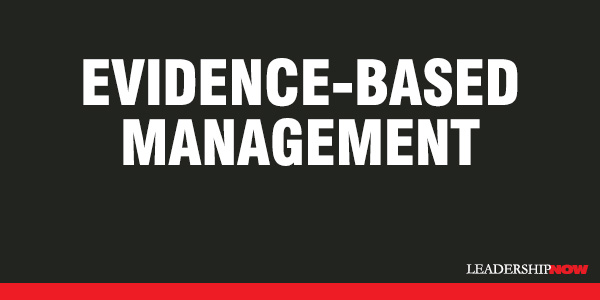 |
 |
04.26.06

Evidence-Based Management
OBSERVING that if doctors practiced medicine the way many companies practice management, there would be far more sick and dead patients, and many more doctors would be in jail, professors Jeffrey Pfeffer and Robert Sutton Evidence-based management is really a way of thinking and looking at the world. The mindset rests on two disciplines: "first, willingness to put aside belief and conventional wisdom—the dangerous half-truths that many embrace—and instead hear and act on the facts; second, an unrelenting commitment to gather the facts and information necessary to make more informed and intelligent decisions, and to keep pace with new evidence and use the new facts to update practices." Some specific half-truths discussed in the book: The best organizations have the best people; financial incentives drive company performance; change or die; great leaders are in control of their companies. Instead of following half-truths, Pfeffer and Sutton endorse principles such as: Treat your organization as an unfinished prototype; see yourself and your organization as outsiders do; power, prestige, and performance make you stubborn, stupid, and resistant to valid evidence; evidence-based management is not just for senior executives; and ask the best diagnostic question: What happens when people fail? 
Posted by Michael McKinney at 12:05 AM
|
BUILD YOUR KNOWLEDGE
 

How to Do Your Start-Up Right STRAIGHT TALK FOR START-UPS 
Grow Your Leadership Skills NEW AND UPCOMING LEADERSHIP BOOKS 
Leadership Minute BITE-SIZE CONCEPTS YOU CAN CHEW ON 
Classic Leadership Books BOOKS TO READ BEFORE YOU LEAD |